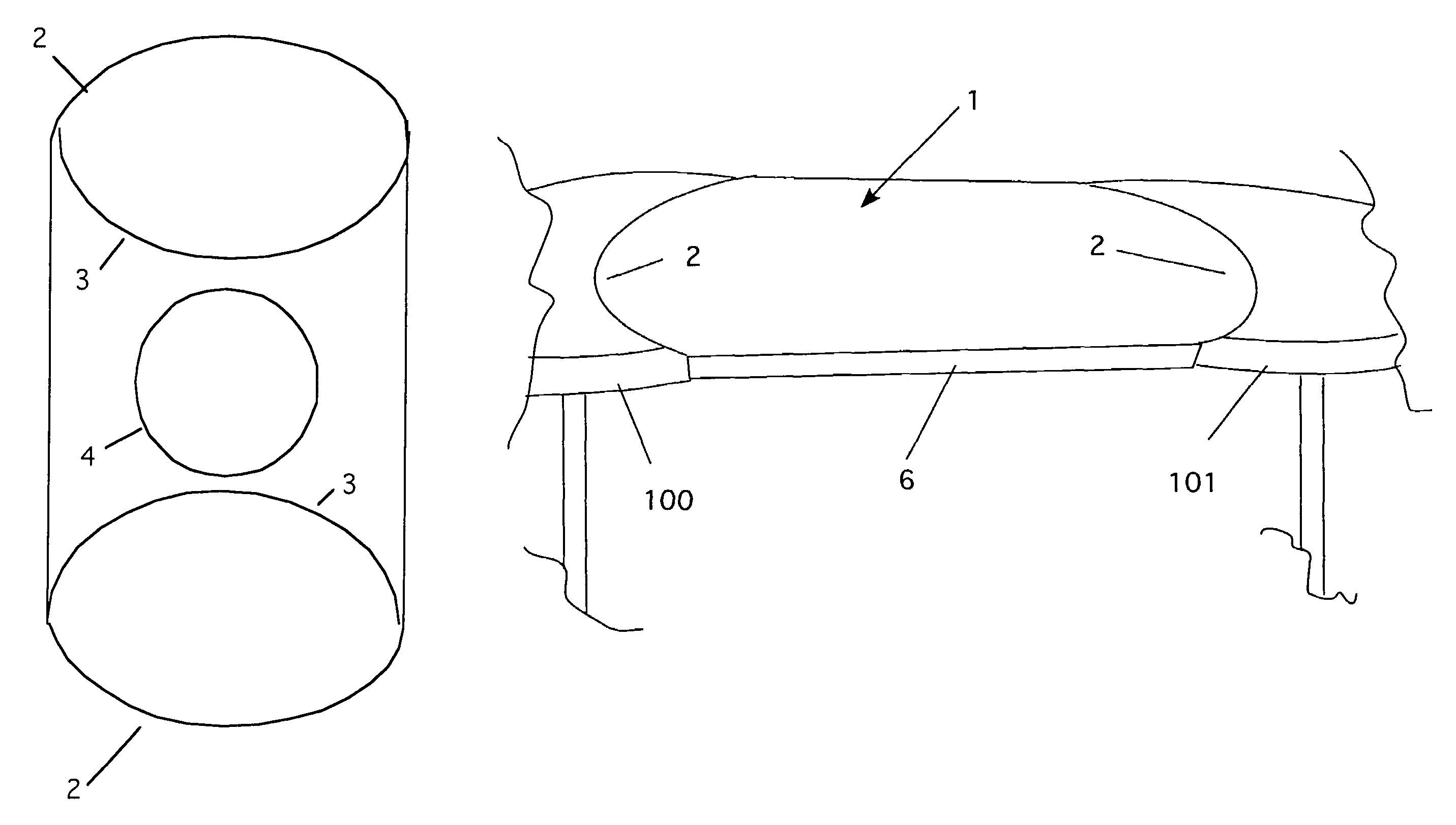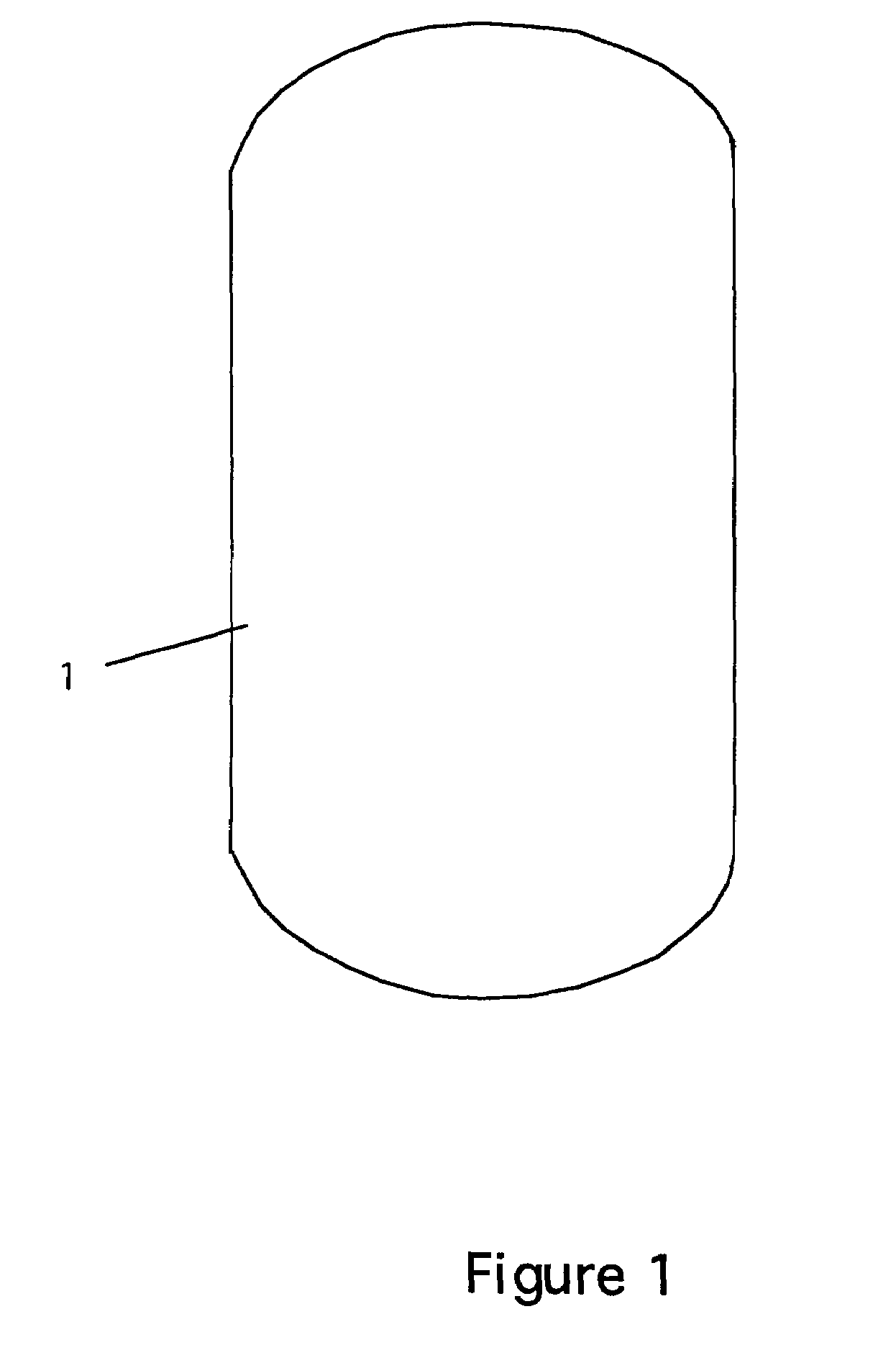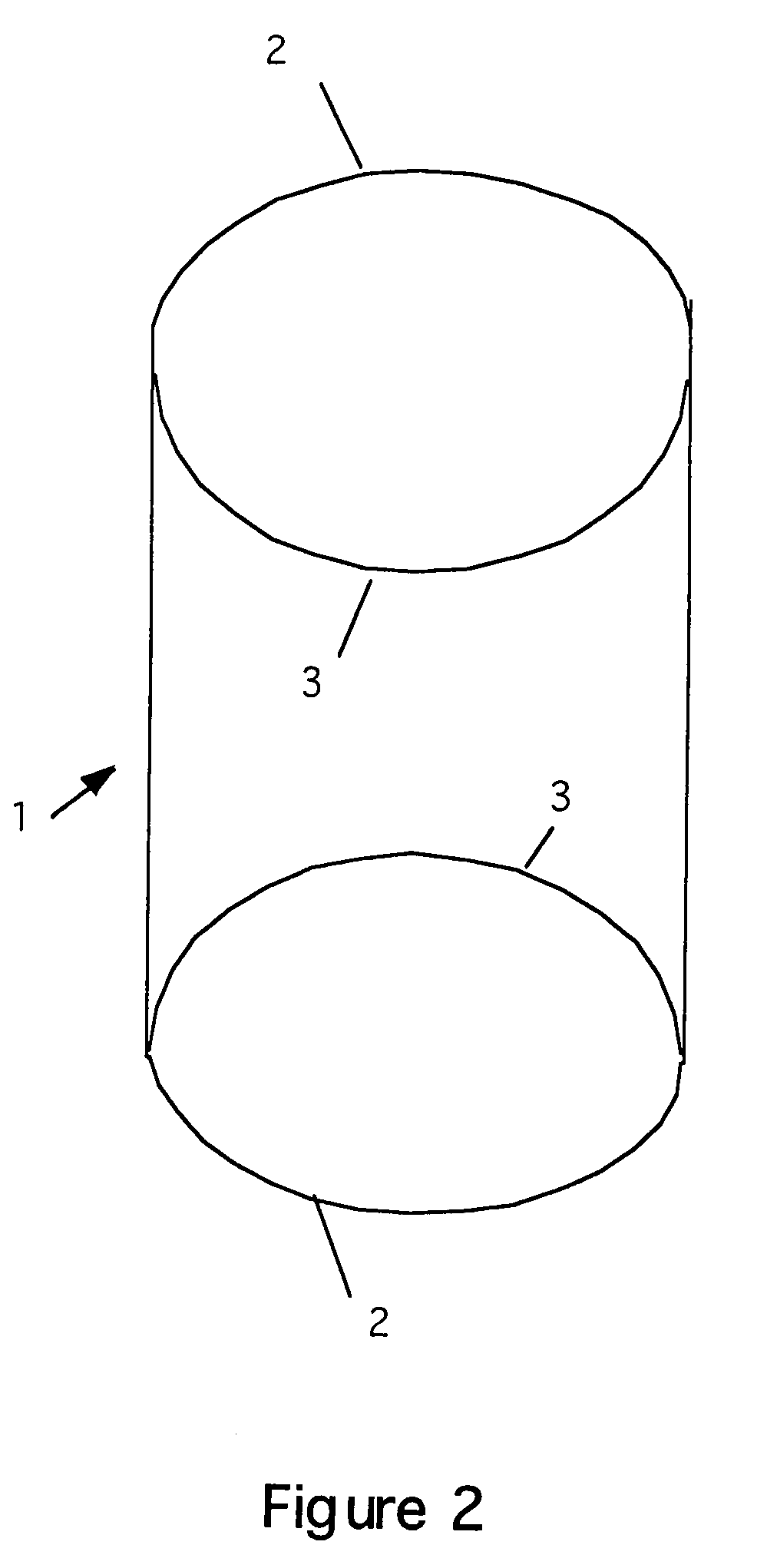Table bridge
a technology for connecting tables and bridges, which is applied in the field of bridges for connecting tables, can solve the problems of inability to combine round tables efficiently, difficulty in use, and limited number of tables
- Summary
- Abstract
- Description
- Claims
- Application Information
AI Technical Summary
Benefits of technology
Problems solved by technology
Method used
Image
Examples
first embodiment
[0021]FIG. 2 is a bottom view of the invention 1. The bottom has two curved sections 3 that form the brace portions. These portions extend downward (see FIG. 4). The radii of the curved sections 3 match that of the round table the bridge is joined. For example, a 36-inch diameter table uses a bridge with curved portions of a 36-inch diameter radius. Note that the curved edges 2 are flat and lie atop the tables when the bridge is set in place.
second embodiment
[0022]FIG. 3 is a bottom view of the invention. In this embodiment, the curved portions 3 are installed as normal. However, an extra form 4 is added in the center. The center form 4 is designed to fit over smaller round tables (e.g., 20 inches dia.) In this way, a bridge can be used to expand a single small table.
[0023]FIG. 4 is a bottom perspective view of two bridges being combined together to make a larger table structure. This system is used with the second embodiment. Here, two small tables are joined by placing the center forms 4 of two bridges on two tables. The tables are then brought together until the end 2 of one bridge overlaps the end 2 of the second bridge. The ends of the bridges are secured by clamps 5 that are slid into place. Note also that in this figure, the edge flanges 6 are shown. The edge flanges provide a safe, rounded edge as well as providing a substantive edge to mimic the edge of a table. These edges also give the bridge a more “finished” look both when ...
PUM
 Login to View More
Login to View More Abstract
Description
Claims
Application Information
 Login to View More
Login to View More - R&D
- Intellectual Property
- Life Sciences
- Materials
- Tech Scout
- Unparalleled Data Quality
- Higher Quality Content
- 60% Fewer Hallucinations
Browse by: Latest US Patents, China's latest patents, Technical Efficacy Thesaurus, Application Domain, Technology Topic, Popular Technical Reports.
© 2025 PatSnap. All rights reserved.Legal|Privacy policy|Modern Slavery Act Transparency Statement|Sitemap|About US| Contact US: help@patsnap.com



